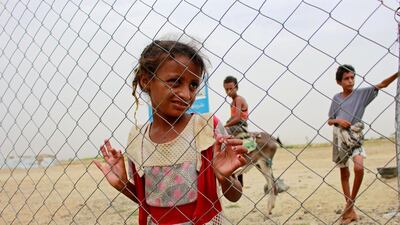The UN warned on Monday that Yemen’s fuel and financial crises will exacerbate the spread of the coronavirus, as infected cases neared 2,000.
Yemen, already devastated by years of war and famine, is the Arab world’s poorest country and experts say that its crippled health system is ill-equipped to handle the pandemic.
“The ongoing fuel and funding crises risk exacerbating transmission of the virus and threaten the broader Covid-19 and humanitarian responses,” a statement by the UN Office for the Co-ordination of Humanitarian Affairs (Ocha) said.
The fuel shortage in areas controlled by Houthi rebels has cut electricity supplies, halting water pumps that has led to people being stranded in need of medical care.
Energy scarcity is nothing new in the country but queues at the pumps have been getting longer by the day since mid-June indicating that the spreading of the virus might increase.
Many Yemenis rely on groundwater extracted with pumps, while millions displaced by fighting and living in camps survive on water brought in by diesel-powered lorries.
The internationally recognised government and the Saudi-led military coalition backing it have accused the Houthis of causing fuel shortages to boost their case for the lifting of the coalition's naval and air blockade, imposed to prevent the smuggling of weapons to the rebels.
The UN Envoy to Yemen, Martin Griffiths, said on Sunday that he was deeply concerned by the major fuel shortages in Houthi controlled areas.
Mr Griffiths called on the warring sides to work urgently with his team to reach a solution that guarantees Yemenis’ access to their basic needs of fuel and oil derivatives and the use of associated revenues to pay civil servant salaries.
“Fuel shortages have devastating and widespread humanitarian consequences for the civilian population. Life in Yemen is unforgiving enough without forcing Yemenis to struggle even harder for their everyday needs that are connected to fuel such as clean water, electricity and transportation,” Mr Griffiths said.
The UN official said that both parties must find a solution that will allow the flow of commercial imports of fuel into Yemen through the port of Hodeidah, which is under the control of the rebels.
The parties agreed to a temporary arrangement in November 2019 that successfully allowed the entry of an estimated 72 ships carrying more than 1.3 million tonnes of commercial fuel imports into Hodeidah port from November 2019 until April 2020, according to the UN envoy’s office.
“The Government of Yemen has issued clearances for several fuel ships to enter through the port since the suspension of the Temporary Arrangements. This is a step in the right direction; “however, more actions are needed,” Mr Griffiths said.
Yemen has so far recorded 1,953 confirmed coronavirus cases and 564 deaths since the outbreak of the virus earlier this year.
But the UN said the number of reported cases has recently slowed down due to lack of testing and official reporting.
"Indicators have suggested that the virus continues to spread and the number of confirmed cases and deaths fall below the actual numbers," Ocha said.
“The reasons for this include a lack of testing facilities and official reporting, and people delaying seeking treatment because of stigma, difficulty accessing treatment centres and the perceived risks of seeking care,” it said.


